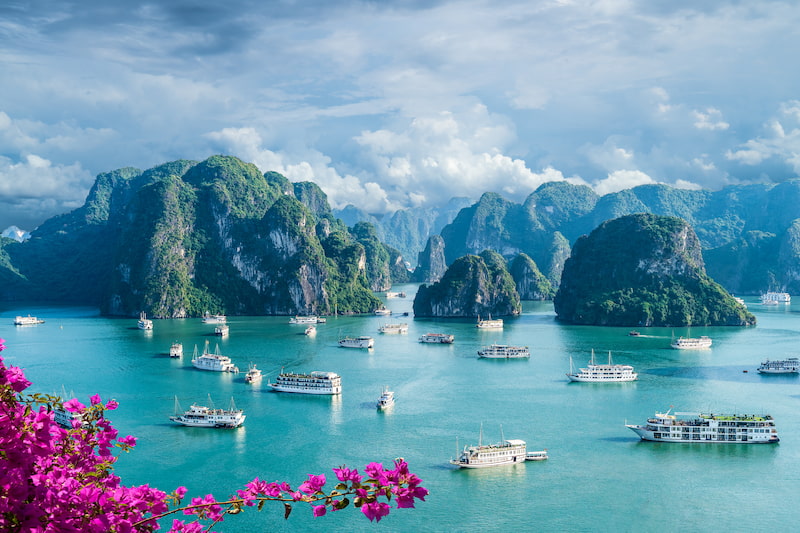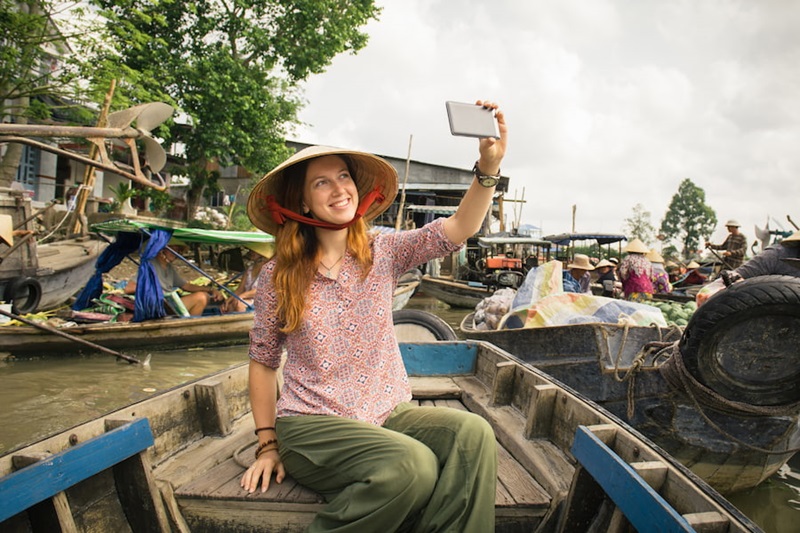The global tourism industry, rebounding from the COVID-19 pandemic, anticipates a landmark year in 2024, with international arrivals and expenditures expected to soar beyond their pre-pandemic levels. Vietnam's tourism sector is also experiencing a remarkable resurgence in 2024, driven in part by its more favourable visa policies and evidenced by the significant increase in international arrivals. This remarkable recovery presents a ripe opportunity for Vietnam to solidify its position as a leading tourist destination in Southeast Asia, and AI is poised to play a key role in this endeavour.
Vietnam's potential for further AI use is directly related to its robust digital infrastructure and the increasing rate of digital literacy and adoption of digital technologies. According to the World Economic Forum's Travel & Tourism Development Index, released in May 2024, Vietnam ranks 57 out of 119 countries in terms of Information and Communication Technology (ICT) readiness, which assesses the availability and use of information and communication technology infrastructure and digital services.
Furthermore, a growing body of evidence suggests that AI is already being effectively deployed in several key areas across the Vietnamese tourism sector, such as:
- Demand predictors: AI algorithms are employed to forecast tourism demand by analysing historical data and trends. This helps businesses in the tourism sector optimise their operations, manage resources efficiently, and tailor marketing strategies to anticipate fluctuations in tourist arrivals.
- Smart tourism: Under the broad umbrella of smart tourism, AI technologies are integrated into various aspects of the travel experience to enhance convenience and personalisation. This includes the use of AI for faster booking processes, virtual tour guides, travel safety, and interactive information systems that improve the overall tourist experience. AI-driven tools are also used for customer relationship management, automated check-ins, and personalised marketing, leading to improved efficiency and customer engagement.
- Tourist recommendations (e.g., chatbots): AI-powered chatbots and recommendation systems play a crucial role in providing personalised suggestions to tourists. These systems analyse user preferences and behaviour to offer tailored itineraries, dining options, and activities, thereby enhancing visitor satisfaction.
- Sentiment analysis (including media): AI is used to perform sentiment analysis on customer reviews, social media posts, and media coverage. This helps tourism businesses gauge public perception, identify areas for improvement, enhance their marketing efforts, and adjust their services accordingly to meet customer expectations.
While these examples highlight the promising inroads of AI in Vietnam's tourism sector, the industry is on the cusp of a much more profound transformation as it grapples with fundamental challenges. One such challenge is the shortage of qualified personnel in the sector.
Experts have consistently emphasised the need for upskilling and retraining in tourism and hospitality, particularly in the post-COVID landscape. A recent study highlighted the gap between supply and demand: while approximately 20,000 students graduate annually in travel, tourism, and hospitality fields, the industry requires a minimum of 40,000 trained professionals each year. This shortage often translates to inconsistent service quality, hindering Vietnam's efforts to boost repeat visitation rates.
AI is a powerful tool to help address this human resource challenge. By automating tasks and streamlining operations, AI can alleviate the burden on existing staff and enhance overall service quality. Moreover, AI-driven training programs can provide personalised learning experiences, equipping the workforce with the digital skills needed for a rapidly evolving industry.
As Vietnam embraces AI, it unlocks the potential for sustainable growth and a competitive edge in the global tourism market. Strategic investment in both AI technology and human capital development will be crucial for Vietnam to achieve its goal of becoming a leading force in the global tourism landscape.
Story: Dr Nuno F. Ribeiro
Senior Lecturer in Tourism and Hospitality Management, RMIT University Vietnam
Chairman of Tourism and Hospitality Sector Committee, Eurocham Vietnam
Masthead image: Summit Art Creations – stock.adobe.com | Thumbnail image: Goffkein – stock.adobe.com





